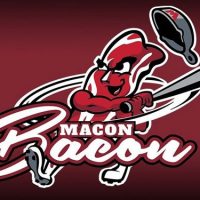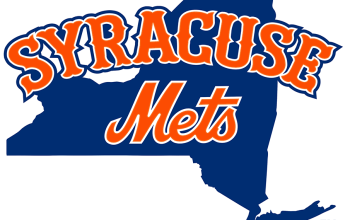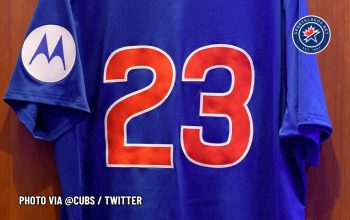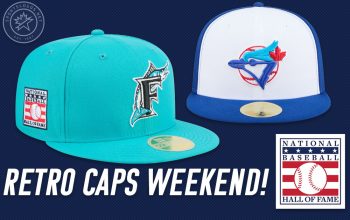When you go to the website for the Savannah Bananas, a summer collegiate-level team in the Coastal Plain League, the first thing you see, in big, bold, all caps type, is this slogan: WE MAKE BASEBALL FUN. When it comes to telling the story behind the team’s nickname, that’s pretty much all you need to know.
In many cases, minor league baseball teams tie their nicknames to some quirky, little-known fact about their hometown. (That’s the whole point of this series that I write.) So when I started researching this story, I half expected to learn that the town of Savannah, Georgia, had some tie to banana-based agriculture. Perhaps there was a team of banana scientists in a Savannah lab cultivating a climate change-resistant species of the yellow fruit, or the local Piggly Wiggly (which I assume exists) holds the record for most bananas sold in a single week, or a graduate of a Savannah high school is working to fight global hunger through a banana-awareness campaign.
The truth is this: When “Savannah Bananas” was submitted on the first day of a name-the-team contest that brought in more than 1,000 suggestions in the fall of 2015, staff members couldn’t get it out of their heads.
“We kept going back to it. Savannah Bananas. Savannah Bananas. Savannah Bananas. Savannah Bananas,” said team president Jared Orton. “There’s no rhyme or reason to it, except that it just fits.”
The Bananas were about to open up operations in a town that had lost its minor league team, and were fighting for the attention of a fan base that might have been a bit jaded.
“We had a huge lunch event where we announced the name-the-team contest, and literally no one cared,” said team owner Jesse Cole. “It was a tremendous struggle for me and my wife as owners, because no one was buying into the team.”
So with nothing more than a funny little rhyme for rationale, the team turned to noted designer Dan Simon of Studio Simon to turn this fun name into a legitimate brand.
“The minute that name was told to me, it put a smile on my face,” Simon said. “I just couldn’t help but smile.”
And while smiling is great and all (it’s my favorite) the team wanted Simon to think about the project another way.
“Our first question was, can you create an angry, fierce, intimidating banana?” Orton said.
Simon took to the drawing board, and approached the project as seriously as you could expect of a person who has just been asked to create an angry piece of fruit.
 “When we talk about these outrageous names that a number of these minor league teams are going with these days,” Simon said, “one of the mistakes that is made with the development of those identities is, when you take an outrageous name and you couple it with an equally outrageous piece of artwork, then it’s too much. That’s why a lot of these identities are poorly received. It’s overkill.”
“When we talk about these outrageous names that a number of these minor league teams are going with these days,” Simon said, “one of the mistakes that is made with the development of those identities is, when you take an outrageous name and you couple it with an equally outrageous piece of artwork, then it’s too much. That’s why a lot of these identities are poorly received. It’s overkill.”
As with any project, there was much back and forth about the details.
“If you could see some of the emails exchanged,” Orton said. “At one point, the banana had teeth. At one point, we’re trying to figure out if the banana was left handed or right handed. We’re talking about this fruit object.”
Orton was home for Christmas when Simon delivered the artwork, and he loved it. Orton proudly showed it to his family, who might have wondered what he was putting in his egg nog. “They’re like, what are you talking about? What is this logo? This is the dumbest thing we’ve ever seen in our lives,” he said.
In the end, the brand immediately caught the attention of the national media, not to mention merchandise-buyers from all 50 states. That’s the function of a name that people liked and solid design.
“As crazy as it sounds to say these words, that banana looks like he was born to play baseball and he should be playing baseball,” Simon said. “That’s the key to taking an outrageous direction and getting it to be embraced by fans across the United States and more specifically in the community where the team plays.”
All of this might seem a bit much for a collegiate summer-level team, but the branding in that market is following the lead set by professional teams at all levels.
“A number of summer collegiate teams have been using the minor league baseball model as far operations of their business goes,” Simon said.
The team even has its own craft, a Banana Cream Ale brewed by Savannah’s Service Brewing Company. (If there’s one industry that has tried to match the wackiness of minor league baseball step for step, it’s craft brewing, so this is a match made in heaven.)
“It is a true banana ale that does taste like bananas,” Orton said, “and people love it.”
The branding has obviously paid dividends. In a town that had just lost its minor league team, the Savannah Sand Gnats, the Bananas broke the Coastal Plain League attendance record in their first season, selling out 17 of their 24 home games. In 2016, they ranked second in average attendance out of 160 collegiate summer league teams nationwide, trailing only the Madison Mallards. At any level, it seems, a fun name (even one with no real backstory) and a solid brand are going to be successful.
















